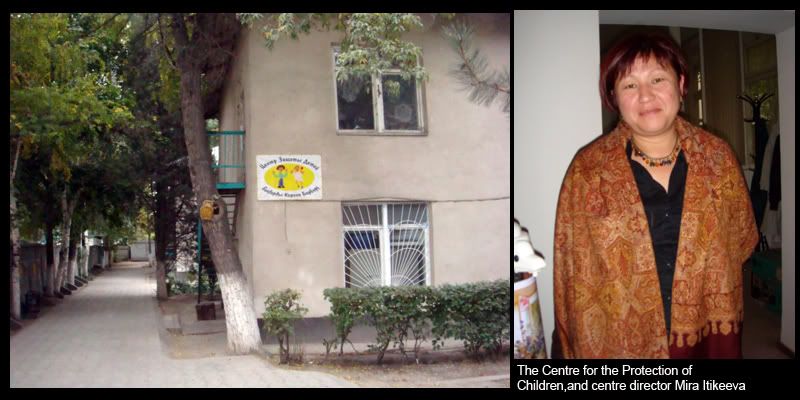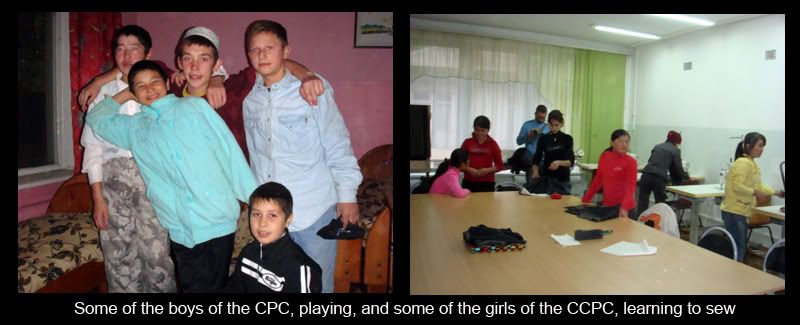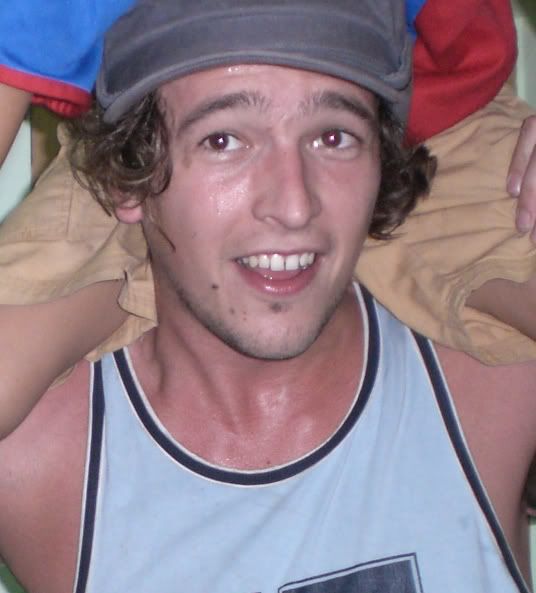Bishkek, Kyrgyzstan
October 16th, 2007
By Dan Murdoch
AMONG the busy stalls and back alleys of Bishkek’s bazaars, one organisation is offering a way out for young children forced to abandon their education and work to survive.
The Centre for the Protection of Children (CPC) has spent the last nine years working with children living on Bishkek’s streets, or working instead of going to school.
The burgeoning charity, which has 35 staff on the pay-roll, is based in Astrahanskay Street, where it has classrooms, workshops, offices, a medical centre and dormitories that house 20 children who were previously living rough.
It also has premises in Osh Bazaar and Dordoy Bazaar, which have a regular programme of workshops, a daily meal and first aid facilities along with access to counselling and advice for both children and parents.

From these bases the CPC team run outreach programmes that meet working children in the bazaars and try to encourage them to return to school.
CPC co-founder and executive Mira Itikeeva admits it is a difficult task: “It is a very hard job. Sometimes these children are living in terrible conditions in unfinished buildings like the ones near Fujika Park. They want to go to school, but they are often working to survive, just to buy bread, so it is hard for them.”
Despite the size of the task CPC boasts sending 112 children back into education last year, and another 118 this academic year.
“It is important to work with the schools. They are sometimes not ready to take these children back because they have gaps in their education and the teachers can have a bad attitude,” Mrs Itikeeva added.
But the charity is worried that this process has been made more difficult by the recent price rises for bread and vegetables: “Because of this more families need money and there may be more children being sent out to work,” said Mrs Itikeeva.
CPC helps around 170 children on a daily basis, but as many as 350 children, and their families, over the course of a year.
Training offered by the charity includes leadership and communication skills, advice on children’s rights and sexual health, along with informal classes in maths, reading and writing to help children return to school.
The charity’s sewing workshop in Astrahanskay Street has proved a particular success. Some of the girls who attend have been able to return to education and still make more money using their newfound skills than they ever did working in the bazaar. According to Mrs Itikeeva this also helps the children’s parents to understand the value of education

For the children living with CPC, long-term solutions are reunification with parents or family, or adoption. However, Mrs Itikeeva says international adoption is a problem because there is no monitoring system, leaving the children open to exploitation. CPC does run a programme allowing individuals to sponsor a child’s education. For 350s ($10) a month donors can help their chosen child to pay for school supplies and uniforms. The charity is planning to start providing reports of the child’s progress to their sponsors twice a year to try and boost take up of the scheme.
The CPC operation is funded by donations, some from the Netherlands, but the vast majority from the Danish charity Operation Day’s Work.
Despite her organisation’s majority foreign funding, Mrs Itikeeva thinks the Kyrgyz authorities are slowly coming round to the issue: “At the end of the 90s the government was saying that there were no street children in Bishkek, now they recognise there is a problem. But still there are no specific laws about child labour.”
She hopes the work of CPC will continue to provide support for children who have nowhere else to turn.
Ends


1 comment:
MBBS in International School of Medicine : https://www.prologueabroad.com/international-school-of-medicine
Post a Comment